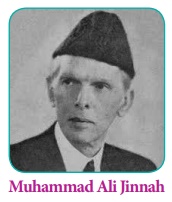Communalism in Nationalist Politics | History - Observation of Day of Deliverance | 12th History : Chapter 6 : Communalism in Nationalist Politics
Chapter: 12th History : Chapter 6 : Communalism in Nationalist Politics
Observation of Day of Deliverance
Observation of Day of Deliverance
The
Second World War broke out in 1939 and the Viceroy of India Linlithgow
immediately announced that India was also at war. Since the declaration was
made without any consultation with the Congress, it was greatly resented by it.
The Congress Working Committee decided that all Congress ministries in the
provinces would resign. After the resignation of Congress ministries, the
provincial governors suspended the legislatures and took charge of the
provincial administration.
The Muslim League celebrated the
end of Congress rule as a day of deliverance on 22 December 1939. On that day,
the League passed resolutions in various places against Congress for its
alleged atrocities against Muslims. The demonstration of Nationalist Muslims
was dubbed as anti-Islamic and denigrated. It was in this atmosphere that the
League passed its resolution on 26 March 1940 in Lahore demanding a separate
nation for Muslims.
Though the idea of
Pakistan came from the Muslim League platform in 1940 it had been conceived ten
years earlier by the poet–scholar Mohammad Iqbal. At the League’s annual
conference at Allahabad (1930), Iqbal expressed his wish to see a consolidated
North-west Indian Muslim State. It was then articulated forcefully by Rahmat
Ali, a Cambridge student. The basis of League’s demand was its “Two Nation
Theory” which first came from Sir Wazir Hasan in his presidential address at
Bombay session of League in 1937. He said, “the Hindus and Mussalmans
inhabiting this vast continent are not two communities but should be considered
two nations in many respects.”

Neither Jinnah nor Nawab
Zafrullah Khan then had considered creation of separate state for Muslims
practicable. However, on March 23, 1940, the Muslim League formally adopted the
idea by passing a resolution. The text of the resolution ran as under:
“Resolved that it is the concerted view of this session of the All India Muslim
League that no constitutional scheme would be workable in this country or
acceptable to Muslims unless it is designed on the following basic principles,
viz. that geographically contiguous units are demarcated into regions which
should be constituted with such territorial readjustments as may be necessary,
that the area in which the Muslims are numerically in majority should be
grouped to constitute Independent State.” The League resolved that the British
government before leaving India should effect the partition of the country into
Indian union and Pakistan.
Related Topics